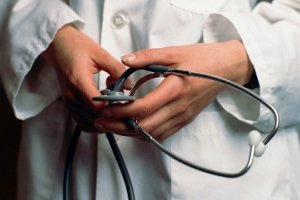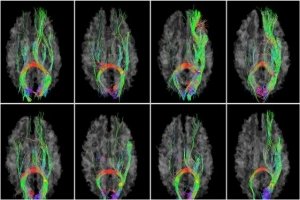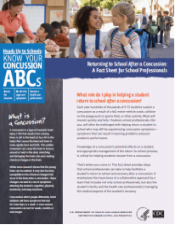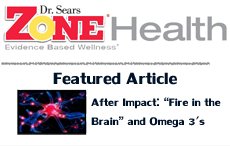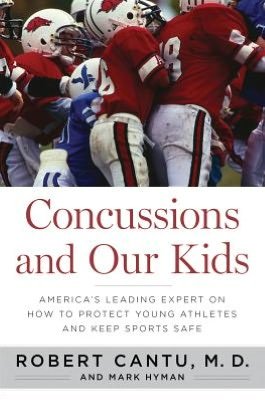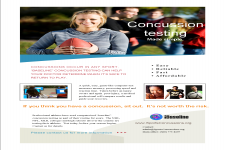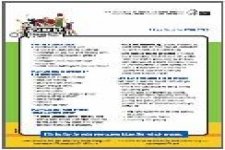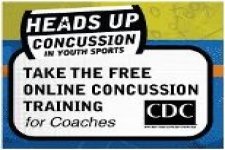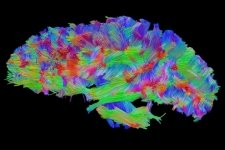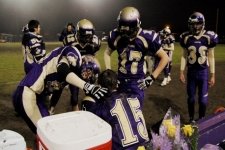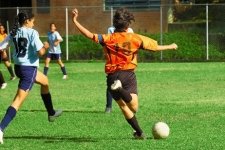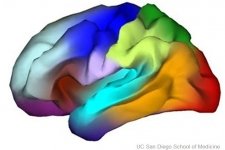UPMC study; early indicators of prolonged concussion recovery
- Created on Monday, 12 March 2012 12:07
- Last Updated on 16.01.2013
- Published Date

PITTSBURGH – The unpredictable nature of concussions is one of the most frustrating factors to the millions of sufferers each year, but early neurological indicators and symptoms can predict a protracted healing time in certain cases, according to specialists at UPMC and the University of Pittsburgh School of Medicine.
“It’s a highly variable injury with a variety of outcomes,” said Michael “Micky” Collins, Ph.D., director of the UPMC Sports Medicine Concussion Program and co-investigator of the Pitt/UPMC study published in the February issue of Neurosurgery. “We see some patients who take a day or two to recover, and some who take a year or longer to recover. If clinicians had a way of determining within two days of injury who’s going to take a month or longer to recover, that’s a very important piece of information to have. It’s a game-changer.”
The study, one of the first to examine concussion prognoses, showed that specific neurocognitive “cut-off” scores derived from ImPACT™ (Immediate Post-concussion Assessment and Cognitive Testing) improved clinicians’ ability to predict which sports-related concussions could take longer –- as much as five times longer -- to rehabilitate than others. They found, in as many as 85 percent of the cases, the scores could warn athletes, parents, coaches, schools, teams and health professionals when a concussion is likely to take on average a month to heal.
Such an objective prognosis could help clinicians to better prepare a treatment plan, arrange academic accommodations for students and set tangible expectations for return to play and school, Dr. Collins said.
The study reviewed 108 high-school football players who were given ImPACT tests within a median of two days after their concussions. Fifty boys experienced a recovery lasting, on average, 33 days before returning to play, and those longer rehabilitations could be forecast by specific “cut-off” scores in ImPACT Visual and Processing Speed testing. Migraine and cognitive symptoms also appeared to have predictive power. Study participants who scored above the threshold levels recovered within a median of seven days.
“We’ve established statistical ‘cut-offs’ that indicate people who take a month or longer to recover,” Dr. Collins said. “Eighty percent of concussed people recover inside of three weeks. This prognostic information allows us to develop a risk profile of athletes who don’t recover well from this injury.
Other study authors include Brian Lau, B.S., from the Pitt School of Medicine, and Mark Lovell, Ph.D., the Concussion Program’s founding director who retired from UPMC last summer.
About UPMC Sports Medicine Concussion Program
The first-of-its-kind UPMC Sports Medicine Concussion Program, established in 2000, is the largest multi-disciplinary clinical and research program that focuses on the diagnosis, evaluation and management of sports-related concussion in athletes of all levels. The UPMC clinicians and researchers treat more than 13,000 patients a year, and published more than 75 clinical research studies in peer-reviewed scientific journals.
About ImPACT
ImPACT™ (Immediate Post-Concussion Assessment and Cognitive Testing) is an independently validated and researched concussion-evaluation system that has become the most widely used in the United States. Co-founded in the early 1990s by Drs. Mark Lovell, Joseph Maroon and Michael “Micky” Collins, who have a proprietary interest in ImPACT Applications, Inc., ImPACT is a 20-minute test that is a standard tool used as part of comprehensive clinical concussion management adopted across the NFL, NHL, NBA, Major League Baseball, college and high-school athletics -- with roughly 3 million people tested.
Source: UPMC press release- https://www.upmc.com/mediarelations
Photo courtesy UPMC
Brain Health
It is rare for a sports-related concussions to result in a more serious injury such as a skull fracture or hematoma. Nonetheless, it pays to be aware that catastrpohic injuries do sometimes occur as ...
read more...-
CT scans may increase brain cancer risk
Children and young adults scanned multiple times by computed tomography (CT), a commonly used dia...
-
Sub-concussive impacts may affect learning
MINNEAPOLIS – A new study suggests that head impacts experienced during contact sports such as ...
-
Physical activity boosts learning
INDIANAPOLIS – School administrators looking to restructure the academic schedule should consid...




Neuroscience
Athens, Ga.- University of Georgia researchers have developed a map of the human brain that shows great promise as a new guide to the inner workings of the body's most complex and critical organ.
...
read more...-
Does CTE infect neuron to neuron?
NFL Hall of Famer "Iron Mike" Webster's life ended in 2002 when he suffered a heart attack at age...
-
Progesterone seems to protect neurons after injury
It is not yet known why girls suffer concussions at a higher rate than boys. The most prevalent...
-
Amino acids may restore concussion's chemical imbalance
Concussions are often called the "invisible" injury because they are usually not detectable by t...
Resources
- School professionals play an important role in the health of all students. Recognizing the signs and symptoms of concussion is important, as is managing their return to school ...
- CDC's Concussion Training for Clinicians
-
Concussion Education Video Programs - Free and Easy
Parents, athletes, coaches and medical professionals have access to concussion education created...
-
New concussion guidelines for team physicians
INDIANAPOLIS – Team physicians who assess and treat athletes suspected of concussion have new ...
quick links
Latest News
Concussions Occur...
...in Any Sport
REMOVE athlete from play
REFER to medical provider
REST no sports, no texting/TV
RETURN only with doctor's OK
Source: Children's Hospital Boston, Sports Concussion Clinic












